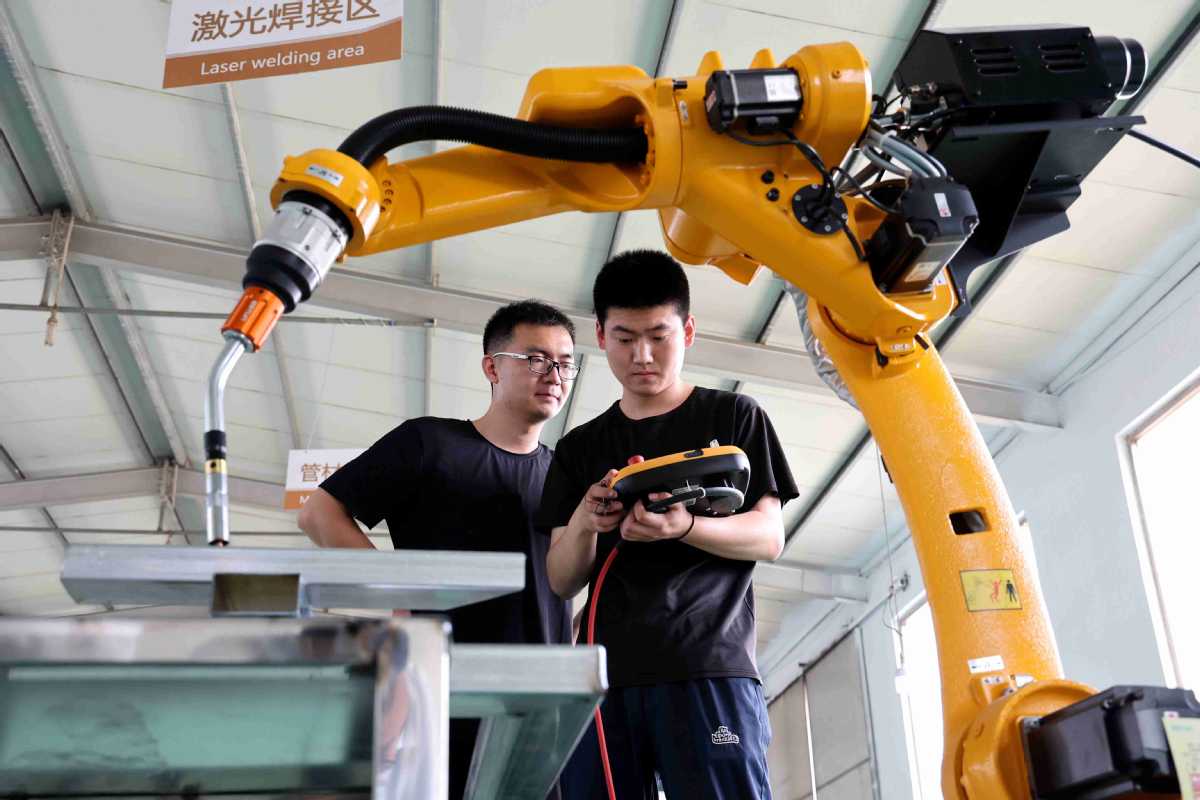Industrial robots on march amid demand from new energy plays
By MA SI | CHINA DAILY | Updated: 2022-07-06 09:05

Industrial robots are expected to see rapid growth in China as the recovery of the downstream manufacturing sector and the expansion of production of lithium batteries, new energy vehicles and other industries drives demand.
Estun Automation Co Ltd, a leading Chinese industrial robot company, said the company is working overtime to complete orders.
The Nanjing, Jiangsu province-based company said that since May, market demand for industrial robots represented by medium and large-load robots has grown rapidly, and its industrial robot production lines are running at high speed.
Estun is not alone. A string of Chinese industrial robot companies are seeing a revival of demand for their products, as customers such as new energy industry players have resumed work and stepped up production capacities amid better containment of the COVID-19 pandemic.
Amid rising demand, some companies have raised prices of industrial robot products. Efort Intelligent Equipment Co Ltd, for instance, issued a price adjustment letter saying that starting from July 1, prices of all robot products would jump by 3 to 10 percent.
Meng Pengfei, an analyst at Chinese securities company Kaiyuan Securities, said new energy vehicles, lithium batteries, photovoltaics and other highly prosperous downstream industries are accelerating production expansion, which increasingly rely on automated manufacturing and spur demand for industrial robots.
"Industrial robots have become an important tool for lithium battery production. High-performance, high-speed, and high-stability industrial robots can provide more economical and efficient production solutions for lithium battery production," Meng said.
China's factory activity expanded in June for the first time in four months, with the official purchasing managers index for China's manufacturing sector in June coming in at 50.2, said the National Bureau of Statistics. The data suggest that the country's economic recovery is gathering pace amid better containment of the COVID-19 pandemic and more substantial policy support.
China has been the world's largest market for industrial robots for eight consecutive years. The Ministry of Industry and Information Technology said in a five-year plan that the operating income of China's robotics industry is expected to grow at an average annual rate of 20 percent from 2021 to 2025.
In 2020, the manufacturing robot density, a metric used to measure a country's level of automation, reached 246 units per 10,000 people in China, nearly twice the global average. Wang Weiming, an official with the ministry, said China aims to double its manufacturing robot density by 2025.
